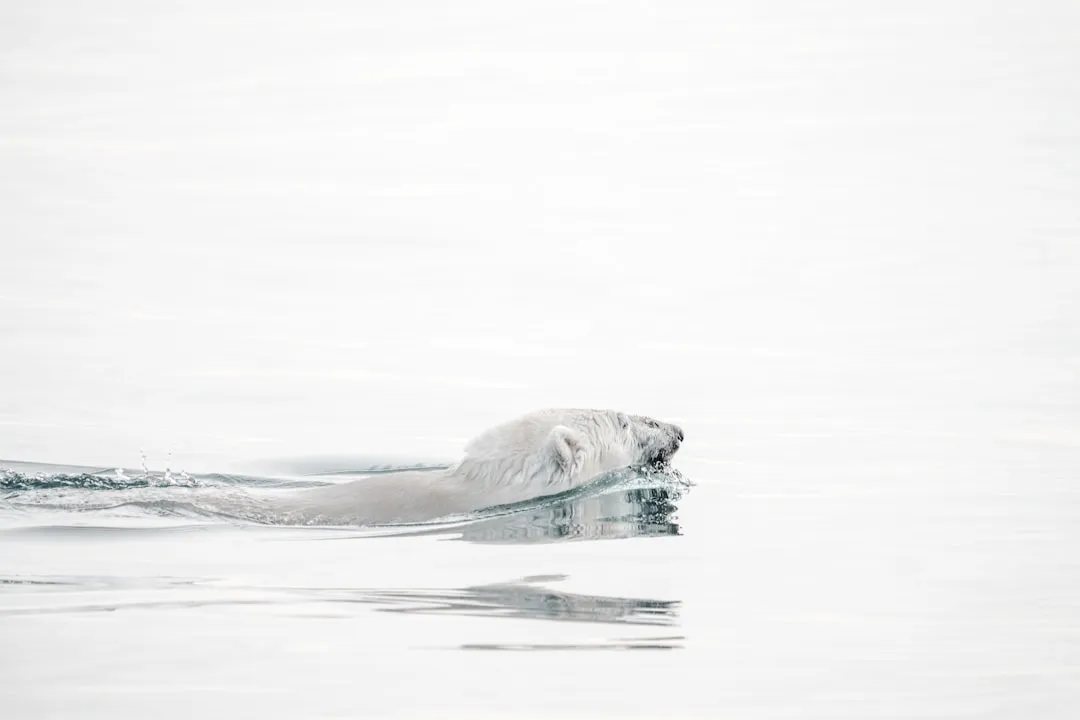The UK is deploying AI to bolster Arctic security against rising threats from hostile nations, reinforcing its commitment to stability.
The UK’s strategic use of AI in the Arctic highlights a commitment to safeguarding national security.
Geopolitical Landscape and the Arctic’s Rising Importance
The Arctic has transformed from a remote, frozen frontier into a geopolitical hotspot in recent years. With climate change leading to the melting of ice caps, new shipping routes are becoming accessible, prompting nations to eye the region’s untapped resources. This shift has intensified competition among global powers, particularly in the wake of Russia’s assertive military posture. As Foreign Secretary David Lammy aptly noted, “The Arctic is becoming an increasingly important frontier for geopolitical competition and trade…” The UK’s focus on this region underscores its recognition of the strategic significance that the Arctic holds for national and European security.
The implications of Arctic developments are particularly pronounced for the UK, given its geographical proximity to Norway and Iceland. Both countries are key allies in maintaining stability in the High North, where Russia’s Northern Fleet poses a constant threat. Collaborative naval operations between the UK and Norway are vital to safeguarding undersea infrastructure, which includes critical energy supplies and telecommunication lines essential for UK and European operations.
AI Deployment: A Technological Leap for Security
Amid these escalating tensions, the UK is taking a significant step by deploying artificial intelligence (AI) technologies to monitor and respond to threats in the Arctic. This initiative, announced by Lammy during his visit to Iceland, is not merely a technological upgrade but a strategic necessity for enhancing Arctic security. The use of AI allows for enhanced surveillance capabilities, enabling quicker detection of hostile activities in a region characterized by its vastness and harsh conditions.
Through this AI-driven approach, the UK aims to strengthen its defence posture by integrating advanced analytics and machine learning algorithms to predict and respond to threats in real-time. This move reflects a broader trend where nations increasingly rely on technology to address complex security challenges. By harnessing AI, the UK is not only improving its operational efficiency but also sending a clear message about its commitment to national security in an era marked by rapid technological evolution.
Collaboration with Allies: Strengthening Partnerships
The UK’s initiative to bolster its Arctic security capabilities is deeply intertwined with its longstanding partnerships, particularly with Norway and Iceland. These nations share a commitment to maintaining peace and stability in the region, and their collaboration is essential for countering threats posed by adversarial states. As Lammy stated, “It’s more important than ever that we work with our allies in the High North…” This sentiment highlights the importance of multinational efforts in ensuring a secure Arctic, especially as the geopolitical landscape continues to evolve.
Joint military exercises and operational patrols between the UK and Norway serve as a foundation for this collaboration. These activities are crucial for not only enhancing military readiness but also for fostering deeper ties among allies. The establishment of a UK-Iceland tech partnership aims to further advance these efforts, ensuring that both nations are equipped to address emerging threats effectively.
Environmental Implications: The Dual Challenge of Security and Climate
As nations navigate the complexities of Arctic security, they must also contend with the environmental ramifications of their actions. The melting ice caps not only open new shipping lanes but also expose delicate ecosystems to the risks associated with increased maritime traffic and resource extraction. Russia’s use of older vessels for its operations in the region raises concerns about potential environmental disasters, such as oil spills, which could have catastrophic effects on the Arctic’s fragile environment.
This dual challenge of ensuring maritime security while protecting the environment underscores the need for comprehensive strategies that integrate both aspects. The UK’s deployment of AI technologies could play a pivotal role in monitoring not just military activities but also environmental impacts, helping to strike a balance between security needs and ecological preservation.
Investment in Defence: A Comprehensive Approach
The UK’s commitment to Arctic security is part of a broader strategy to enhance its overall defence posture. Earlier this year, Prime Minister Rishi Sunak announced significant increases in defence spending, with plans to raise expenditures to 2.5% of GDP by April 2027. This investment reflects an understanding that security in the Arctic is not an isolated concern; it is part of a larger framework that includes NATO commitments and broader European security initiatives.
Moreover, the recent signing of a Security and Defence Partnership with the EU further emphasizes the importance of collaboration in addressing security threats. By pooling resources and knowledge, the UK and its allies can create a more robust security apparatus capable of responding to a diverse array of challenges.
Key Takeaways and Future Outlook
As the UK embarks on this ambitious initiative to enhance Arctic security through AI, several key points emerge:
- AI technologies are set to revolutionize monitoring and response capabilities in the Arctic.
- Collaboration with allies like Norway and Iceland is crucial for effective security.
- Investment in defence reflects a comprehensive approach to national security.
- Environmental considerations are vital in shaping Arctic policies.
- The geopolitical landscape in the Arctic is evolving, necessitating adaptive strategies.
The Arctic is becoming an increasingly important frontier for geopolitical competition and trade, and a key flank for European and UK security. – David Lammy
As global temperatures rise and geopolitical dynamics shift, the Arctic will continue to be a focal point for nations seeking to assert their influence. The UK’s proactive stance in deploying AI for security monitoring is a forward-looking strategy that acknowledges the interconnectedness of technology, security, and environmental stewardship.
| Key Statistics | Current Status | Future Projections |
|---|---|---|
| UK Defence Spending (2023) | 2.5% of GDP | Projected to reach 3% by 2027 |
| AI Deployment Timeline | Initiated in 2023 | Full operational capacity by 2025 |
| Joint Patrols Conducted | Ongoing with Norway | Expansion planned by 2024 |

